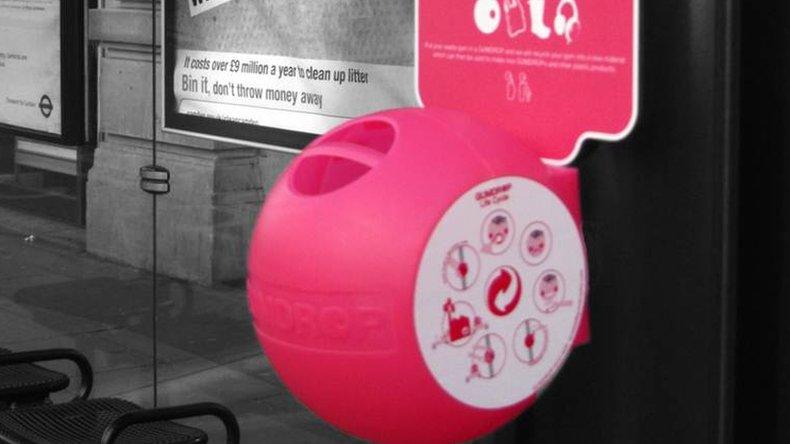Colchester: Pink gum bins removed from 'Britain's oldest town'
- Published
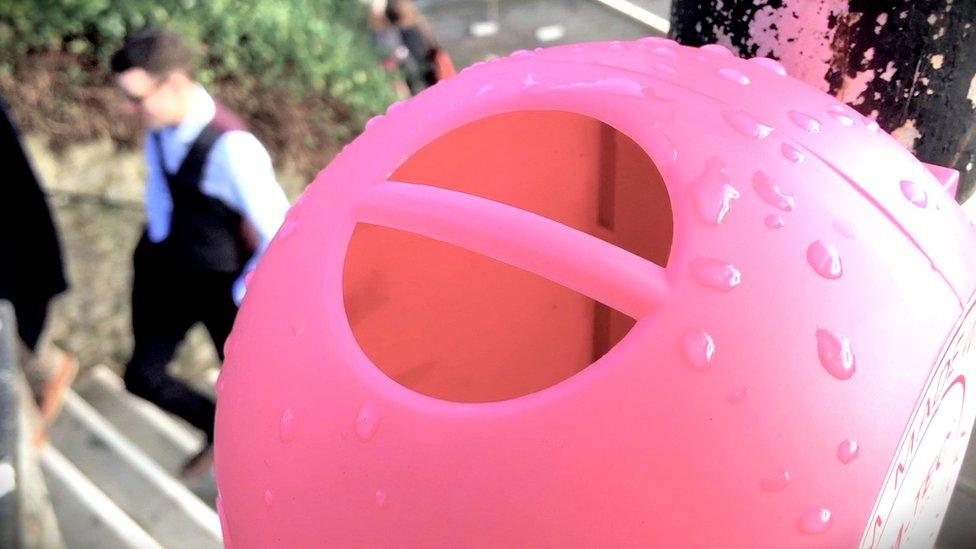
The bright bins are themselves made from recycled chewing gum
Bright pink chewing gum bins have been removed from the streets of a town that claims to be Britain's oldest.
Colchester Borough Council had the bins installed in 2019 and said they had reduced the amount of gum dropped by 81%.
However, it had them taken down after it said Essex County Council advised they should be black to blend in.
The county council said it would consider a renewal application for the bins.
Gumdrop bins are designed to stop people dropping gum on the streets.
They are made from recycled chewing gum and, when full, the gum is recycled to be used in the rubber and plastics industry.
Liberal Democrat councillor Martin Goss, who was responsible for bringing the bins in, said he was "astonished" when the county council advised they should be black instead of pink.
He said the colour was part of "how the project works, to make sure people can see them".
Mr Goss said the borough council did not apply to renew the licence for the bins, which ran out in January, after receiving the county council's advice.
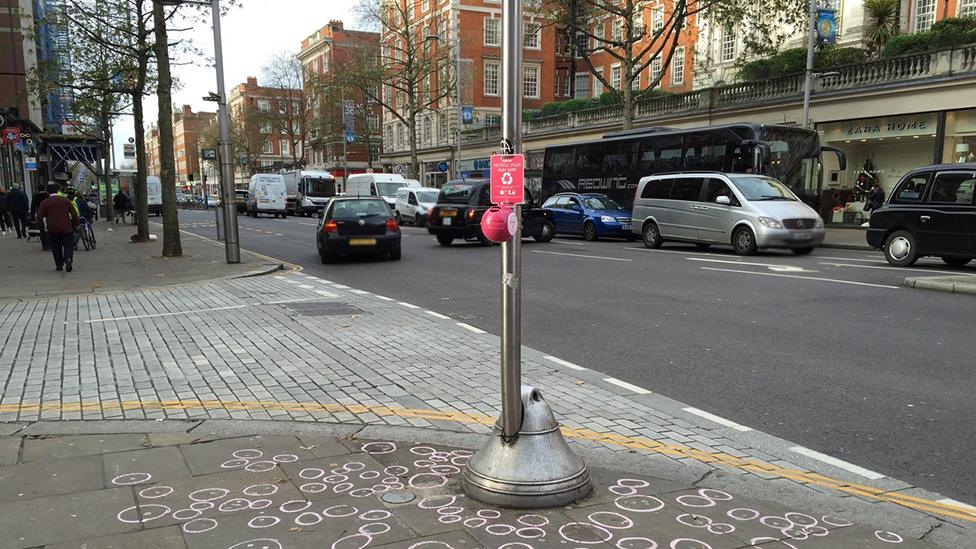
The bins are also in cities such as Bristol, Glasgow and areas of London
The county council said there was "no question the bins have been successful".
But it said it said they should be black "to comply with street furniture standards for other equipment in this beautiful historic town centre".
However, it said the borough council's views would be considered if a licence renewal application was made.
The borough council said it was "looking at all options to ensure our streets remain gum-free".
'Easily identifiable'
Gumdrop, which has bins across the UK including in London, Bristol and Glasgow, said the bins were pink to make them easily identifiable and are the same across the UK and beyond".
It said it was a "shame" the Colchester bins were removed as they were "making great strides", but that it hoped to work pro-actively again with the borough council.

'Britain's oldest town'
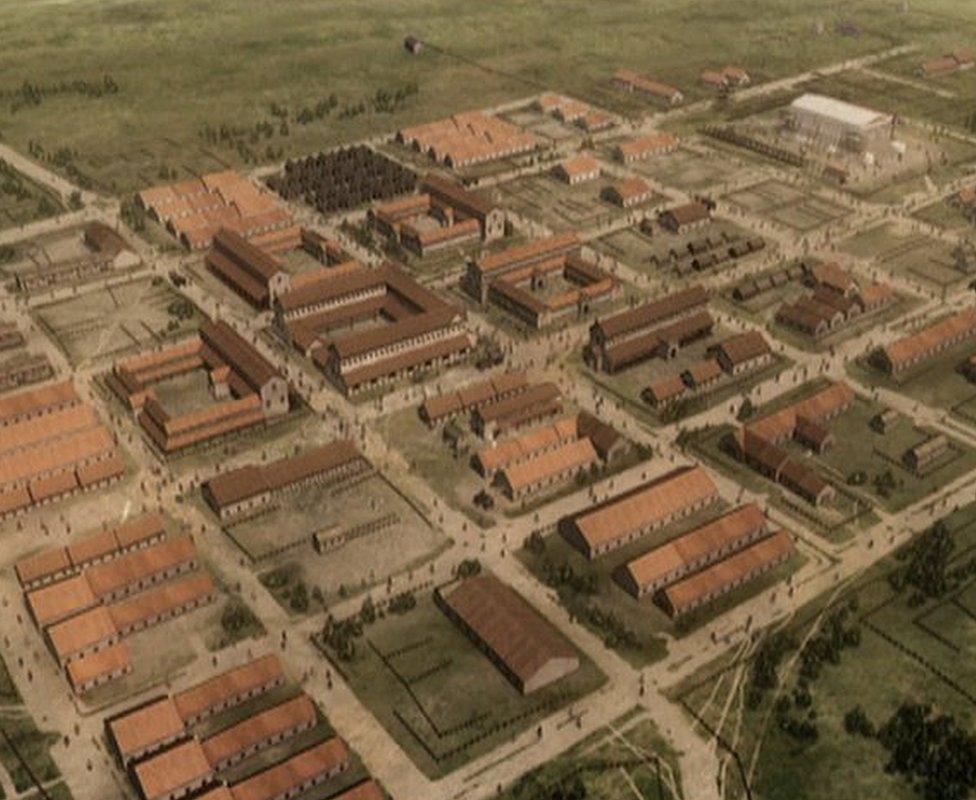
Roman Colchester, as it is believed to have looked in AD60 at the time of Boudicca's revolt, which destroyed the city
Signs on main roads into Colchester proclaim it to be Britain's oldest recorded town - dating from about AD49
While considered "Britain's first city", it remains a town, having missed out on city status to Chelmsford in 2012
It was commonly known as Camulodunum, a Romanisation of its Iron Age name: the Fortress (-dunum) of Camulos, God of War
The borough council said it was also more formally known as Colonia Claudia Victricensis - which "loosely translates as City of Victory"
Camulodunum was a hugely important site in pre-Roman times and most likely the royal stronghold of the Trinovantes, on whose behalf Julius Caesar invaded in 55 and 54BC
In AD60 or 61, while the Roman governor Gaius Suetonius Paulinus was leading a campaign in North Wales, Boudicca's Iceni warriors rebelled, defeating the Roman Ninth Legion at Colchester and destroying what was the capital of Roman Britain

Find BBC News: East of England on Facebook, external, Instagram, external and Twitter, external. If you have a story suggestion email eastofenglandnews@bbc.co.uk, external
Related topics
- Published31 January 2019
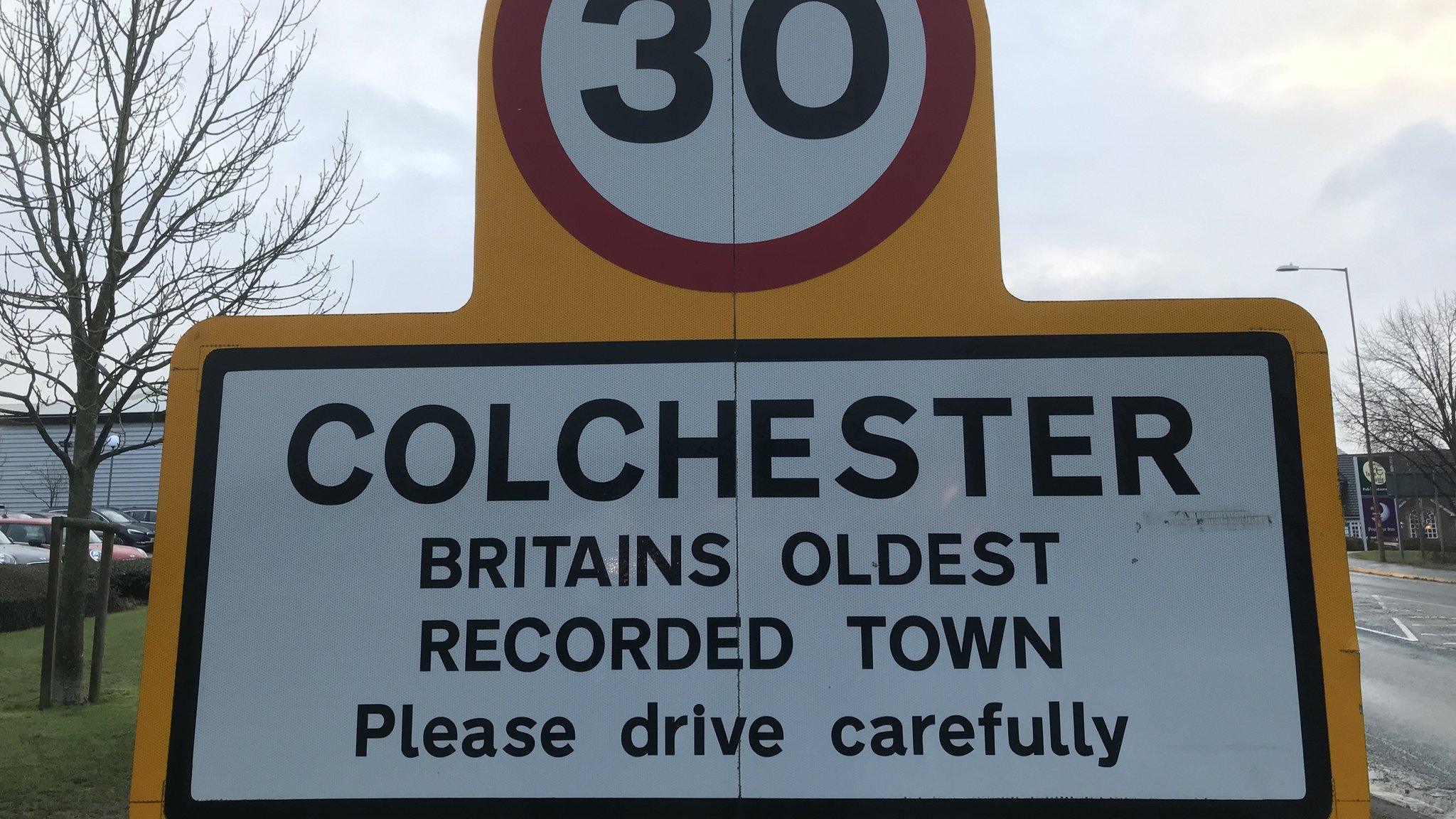
- Published6 August 2013
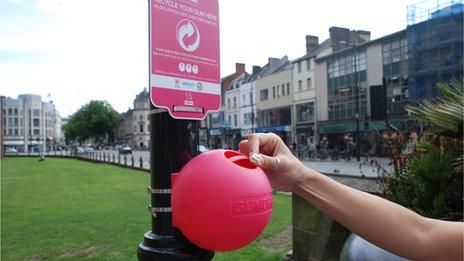
- Published2 August 2012
